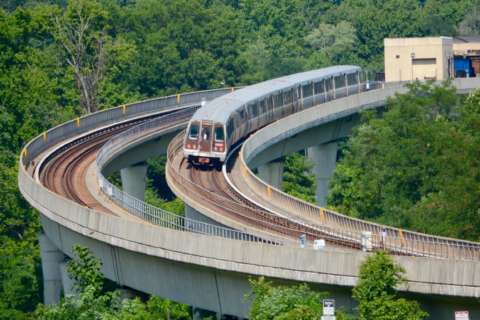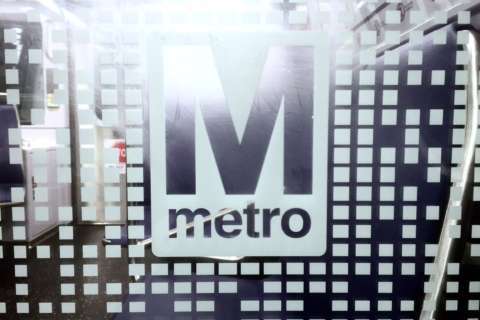WASHINGTON — An unaccounted-for cost looms over Metro’s budgets, even as Maryland, Virginia and the District take final steps toward dedicated funding to resolve long-term capital maintenance, repair and upgrade concerns.
The final round of arbitration hearings for the long-expired contract with Metro’s largest union is set for late this month, WTOP has learned.
An arbitration decision, now expected this summer, could throw Metro’s operating budget and local government budgets in the region out of whack, because the Metro budget approved last month does not account for any possible raises.
Metro opposes any increases, and has not set aside any funding to cover them.
The total increase could be around $50 million per year if a majority of the three-member arbitration panel sides fully with Amalgamated Transit Union Local 689. That would not necessarily be a major budget problem, except for the fact that the raises could be retroactive to July 1, 2016, when the previous four-year contract expired.
That level of retroactive raises and benefits could require more than $150 million in additional funding or savings in the budget that begins this July 1.
The funding crunch of all that cost in a single budget year — if Metro does not cut services or find significant savings elsewhere — could be especially tough on Northern Virginia jurisdictions and their residents. They largely foot the bill for Metro themselves — often through property taxes — because the jurisdictions are already in the process of finishing budgets and setting tax rates for the year that starts in July.
In Maryland, the state generally picks up the tab so funding burdens are more distributed.
The arbitration testimony, set for the last week of April, is expected to focus on safety provisions in the contract as well as pension contributions and wages, a source familiar with the arbitration hearings said.
A Metro spokesperson confirmed that the arbitration process continues.
Dedicated funding progress
Virginia Gov. Ralph Northam expects to propose amendments Monday to the separate capital funding bill for Metro that would provide $154 million in annual state funding for fixes. The General Assembly is scheduled to take up those amendments April 18.
Northern Virginia business and government leaders are concerned that the original version approved by the General Assembly March 10 would take too much funding away from other Northern Virginia transportation projects prioritized by the region.
Maryland’s General Assembly approved that state’s $167 million share of $500 million in annual dedicated capital funding Thursday, and the District expects to approve its $178 million annual share, based on existing funding formulas, later this spring.
None of that funding would help cover most costs of contract increases.
Drivers, station and operations managers, maintenance crews and the workers hired as contractors are, combined, the largest single share of Metro’s operating costs.
Metro’s unfunded pensions and related benefits
According to a Metro statement last year, a union proposal would increase wages and benefits for Local 689 members by a total of $213 million over four years.
Union President Jackie Jeter has said Metro wants to cut salaries and benefits, including a previously announced plan to shift workers away from pensions to a 401(k)-style plan.
Metro has failed to fund its five pension plans and separate other post-employment benefits for decades, leaving an estimated total unfunded liability of around $3 billion. That extends to workers covered by other unions or no union at all.
The unfunded pension liability is actually in line with other public pension plans.
There is no additional funding in the current Metro budget for contributions to the post-employment benefit trust.







